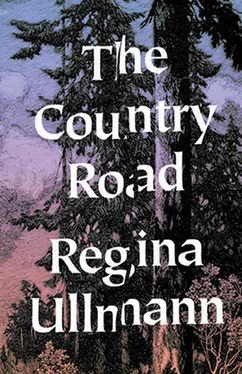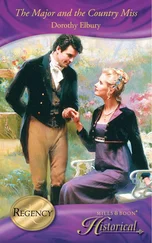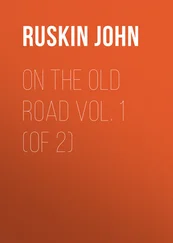I shuddered to see how quickly the conversation blossomed, how it shot up before my eyes, beneath my window.
The woman was standing there now, already, looking with wonder at my life. That I could accept it. I should have bent it to my will. She was right without even knowing it. For she seemed much smarter than she really was. In essence, everything she said was just petty speculation about a house that was already on the block. . Speculation that promised nothing for her, for me, or for anyone else. But speculation nonetheless. (After all, we all like to bargain over the heads of others.) And so I listened patiently to her questions.
Why I was there. That was asking a lot. I was there because I was alone.
Oh God. . When you ask a stone why it’s all by itself; why it has rolled away from the liveliest setting to a lonely place. . I didn’t answer her. I almost didn’t speak at all that evening. But she spoke for me. And only then was it a pleasure to speak. . So she thought for a long while before answering on my behalf. Prophetically. And all at once she predicted for me, by her own measure, how I would feel:
If I persisted in my solitude, I would never find pleasure in life. I should think it over well. After all, life ought to be good, ought to be right with the world. It was the window curtain, it was the geranium plant. It was the clock and the lamp. It was our bed, our table. It was the door by which we came and went. And if it was not there, this world, then we had only scenery, drafty scenery, and beyond the door was nothing, was the abyss. Our estrangement was there, our dreadful, self-inflicted isolation.
That was what awaited me. And in reality it was already there, conjured up by her words. Perhaps not these exact words, but the words that I heard, and the words that she uttered, the woman with the Babylonian hairstyle and the dance-worn patent leather shoes.
She had planted this fear in me. But I didn’t move. Now it was her turn.
In the meantime, the night had settled in. The fence had drawn up close, as if to join the conversation. The gillyflowers had faded to a sensory impression, the mignonettes were a bouquet held up to be smelled. The spinach, at its slow, emphatic pace, seemed to have retreated into the earth; and the lettuce, in its worldly, superficial way, had long since disappeared. Only the boxwood rows with their twinned trees, with the paths and the beds of the garden, had entered into a bond with the stars. To be sure, this relationship was sentimental, singing, pouring itself out. But it was a bond with the stars nonetheless, and that was no small thing. I looked up solemnly; gratefully. The stars were there. And the mere fact that we could see them was such an undreamt-of, godly gift, a compensation for our solitude. .
“Take what you will,” I thought, “I want to gaze out of myself and up to these stars. And if this life, lonely as it is, should nonetheless force me to be with another, at least I may do so as myself alone. .”
I was content. But the woman, who was sitting on my window ledge by now — I didn’t see her anymore, but felt her, more than I would have liked — took me by the arm. “You,” she said softly, as if she, too, had heard this word from the stars (of course she was all-knowing, in the everyday sense), “you should have to start your life all over again one day, the way I did in my parents’ house. That would put an end to your resistance.”
“My father” — she went back that far without even asking me — “my father was a hardworking barber. He died from his job, like all diligent workers do. You have to understand: the outskirts of Vienna. It wasn’t easy for him to earn his bread there. Lots of children, too. But my mother was from the country, she didn’t make a big fuss about us. We just had to work. And we all made something of ourselves (even the ones nobody thought would amount to much). One of us became a tailor, one a glazier, one a head waiter, a barber, a cobbler, and one has his own ice cream parlor. Please, you have to understand: all that without a penny. That’s no small feat. And he was proud of us, my father. I was his youngest daughter. I was supposed to learn to sew. He always liked me the best.”
As she spoke, she looked down at me in the dark, very proudly. I hadn’t had all that. (Oh, how she knew that! My childhood, which had lacked such hard-working models, withdrew again into itself.)
“You see,” she preached (shivering, she had already wrapped herself in the boxwood garden like a coat, and borrowed the distant stars for herself — the things these people can do), “you see,” she preached, “it’s always valuable when you can do something like that.” (She must have meant her skills.) “Anything at all can be useful. I wouldn’t have thought that singing and playing the zither would be worth anything to me, those songs and dances that I’d only learned to pass the time.” (And she didn’t spare me a taste of these talents.) By now I was standing in complete darkness. But she was growing ever more visible; how? Her voice took up a song, and her fingers moved as if they were plucking a zither. It was the far-off song of an organ man, like the songs that the blind may still sing on Fridays in the rear courtyards of Vienna. I listened. I forgot that it was her. The starry night was there again, the undreamt-of grandeur up above. Did it have to grow so beautiful, so that the flowers could fade to darkness and the birds fall silent? I sang, quietly, but without melody.
Then my neighbor took me by the arm again. It seemed that she still hoped to convince me before the night was through. I listened closely.
She was still telling me about her house. It must have been a real home to her. Next to the washroom was a small “sitting room,” as she called it. That’s where the zither stood. They liked to hear her play, especially on Saturday evenings, before Sunday came. Then the little shop bell on the door would ring and ring. And many a guest stayed longer than he’d intended. And so it happened that she didn’t continue with her sewing. “Things pull you away,” she said. “Especially when you’re young. What do you know about careers at that age! You only want whatever makes you happy.” And leaning into my room, she continued: “I became a zither player, and then a singer in a variety show. And I learned lots of tricks from the sleight-of-hand artists and the acrobats.” I listened intently. I must have hoped to learn something, too.
There was a feeling in the air as if the whole world were one great marigold. Some fireflies were coming to life. What was night to them? One of them flew off after another. . But this creature there next to me changed even that night. From that single marigold she made many hardy little flowers for her old-age hat. And the fireflies would have to light her way home, light her way home as quickly as they could at this late hour.
Where in all of this was the truth of truths, where was the blessed night? If it offered itself to everyone. . To this woman here and everyone. . I felt ashamed. It’s a strange thing for a poor person to feel ashamed on behalf of the night, or of the sky. But this neighbor creature was still standing there. She felt no such thing. She was already trying out a new song. The spirited voice of her youth was gone. The zither was gone, too. But there was something of the carnival in her voice. Something she didn’t want. She never would have admitted it to me. But suddenly I heard it in the midst of everything; I too was sharp-witted once.
“She could never have a child, for all the world,” I thought to myself, secretly taken aback. As she stood there before me, visible and invisible, she was the least childlike thing imaginable. She could never have been even the shadow of a child. And yet. . Where were order, confidence, and truth in human nature, when it was so deformed? And wasn’t I her exaggerated counterpart: the exaggeration of truth?
Читать дальше












